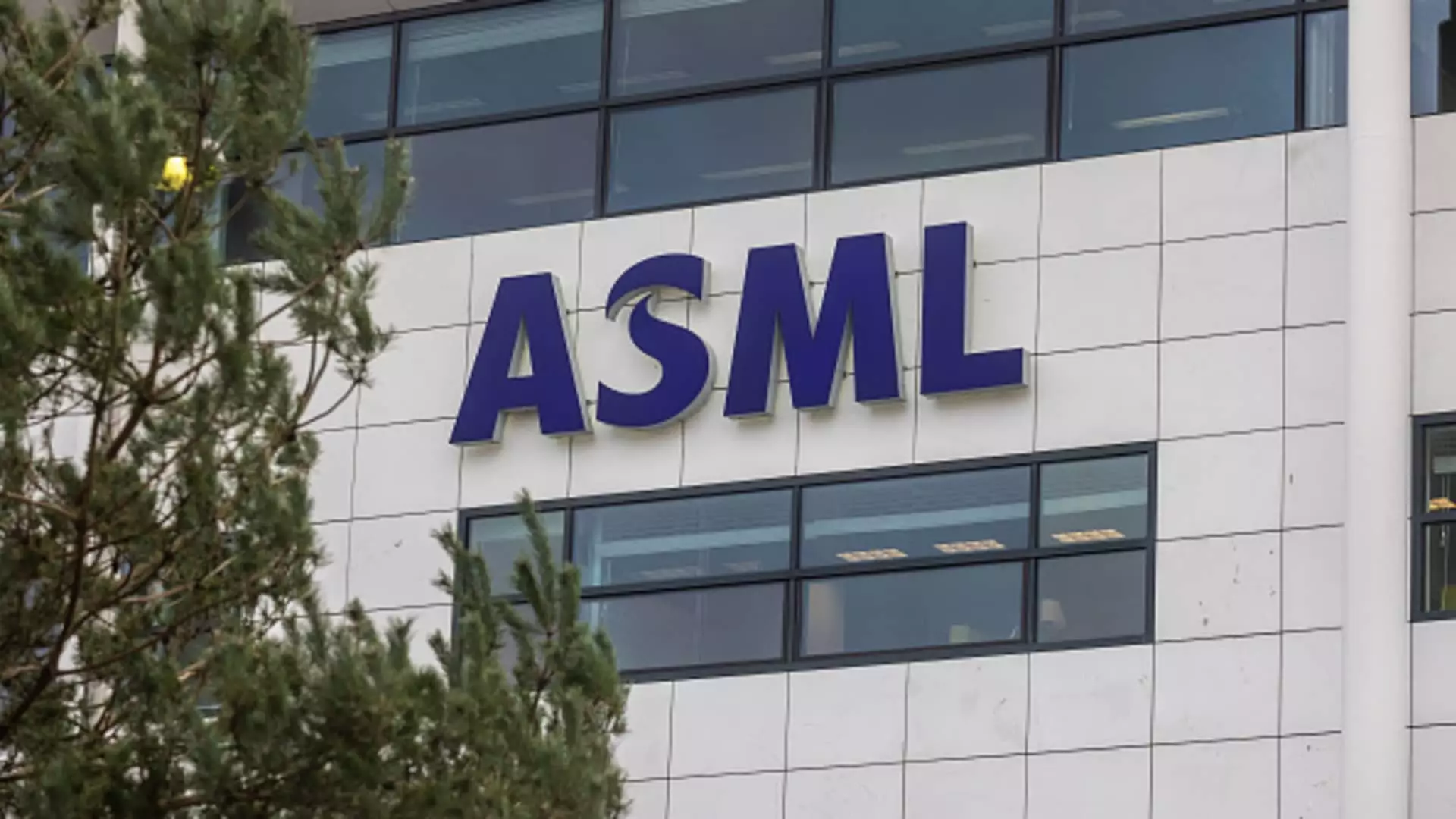ASML, a key player in the semiconductor industry, experienced a decline in its stock value as the company failed to meet sales forecasts. The shares of ASML dropped by approximately 4.5% in early European trade following the release of the results. The net sales figures for the company were reported at 5.29 billion euros, falling short of the expected 5.39 billion euros, while net profit stood at 1.22 billion euros compared to the forecasted 1.07 billion euros.
The decline in net sales for ASML was attributed to a 21.6% decrease year-on-year, with net income also experiencing a significant drop of 37.4%. One of the reasons speculated for this decrease was the weak demand for consumer electronics like smartphones and laptops, affecting chip manufacturers supplying semiconductors for these devices. ASML’s net bookings for machinery, a critical indicator for the company, totaled 3.6 billion euros in the first quarter, marking a 4% decline compared to the previous year and a substantial drop from the December quarter.
The overall semiconductor industry faced challenges due to the uncertain economic environment, impacting customer orders and overall demand. The transition in product in 2025 also played a role in customers holding back on spending, anticipating newer technologies. Despite the current scenario, several semiconductor firms, including memory chipmaker Samsung, have reported a rebound in demand, providing a glimmer of hope for the future.
ASML reiterated its projection for net sales in 2024 to be similar to the previous year, standing at 27.6 billion euros in 2023. The company’s CEO, Peter Wennink, expressed confidence in the second half of the year being stronger than the first, aligning with the industry’s anticipated recovery. Wennink emphasized that 2024 would be a transitional year with continued investments in capacity ramp and technology to prepare for the industry cycle’s upturn.
ASML’s equipment is widely favored by major chip manufacturers globally, such as Taiwan Semiconductor Manufacturing Co., Samsung, and Intel. ASML’s optimism stems from the expanding production capacities of these giants in America, supported by the U.S. CHIPS and Science Act. The company anticipates a convergence of factors by 2025, including new fab openings, promising secular trends, and the industry’s upturn.
Despite export restrictions imposed on advanced semiconductor equipment, ASML reported a significant increase in sales to China, accounting for 49% in the first quarter compared to 39% in the previous quarter. The Dutch government implemented restrictions on export to China in response to U.S. pressure last year, affecting ASML’s operations. However, the company remains resilient, expecting a marginal impact of 10% to 15% on China sales for the year.
ASML’s recent financial results have raised concerns among investors, indicating a challenging period for the semiconductor industry. Despite the setbacks, the company remains hopeful for a turnaround in the coming months, banking on industry developments and customer demand.

Leave a Reply